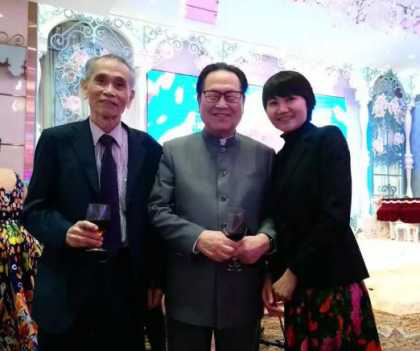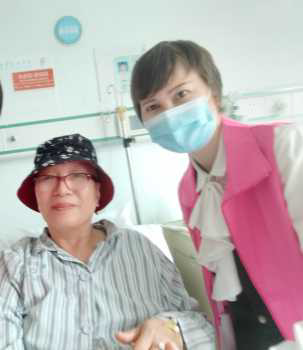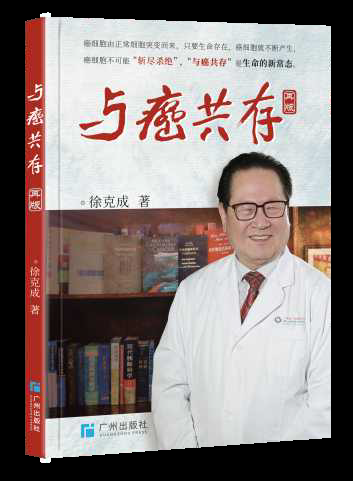Member:
What about breast cancer? We have the most breast cancer patients in our rehabilitation association, and everyone wants to get good news from today's "dialogue".
Xu Kecheng:
I don't treat many breast cancer cases with combined immunotherapy, perhaps because breast cancer is easier to treat and the consequences are good. There are also some patients who "really have no other options" who come to me. Have you seen a volunteer in my hospital? She is tall and always carries a small bag. Her name is Amei. She was originally a stewardess in the VIP cabin of a Hong Kong airline. In May 2009, she was diagnosed with right breast cancer in Hong Kong and underwent breast-conserving tumor surgery. Pathology confirmed that it was invasive ductal adenocarcinoma. In May 2016, the tumor recurred at the original surgical site of the right breast and quickly grew to 8 cm in size. The surface of the tumor was ulcerated and smelly. Metastasis occurred in the ipsilateral axillary lymph nodes and thoracic vertebrae, and then metastasis occurred in the left chest cavity and lung. The patient was weak, emaciated, and anemic. She underwent another surgery in our hospital, and has been receiving combined immunotherapy ever since. Although the tumor has not completely disappeared, she is "coexisting with cancer" in a healthy way. She is so grateful that when she sees her fellow patients, she encourages them by saying, "I have advanced cancer, you must have confidence." She decided to live in the mainland for a long time and be a lifelong volunteer to repay society.

Amei accompanied Xu Kecheng to attend the "Cancer Prevention Proclamation Conference" held by the Hong Kong Overseas Chinese Friendship Association

Amei volunteers at the "Xu Kecheng Cares for Health Studio"
Member:
I am from Hong Kong. I came to Fuda Cancer Hospital for treatment after hearing Amei's story. I had left breast cancer 5 years ago and underwent surgery in Hong Kong. In recent years, I have had bone metastasis throughout my body, especially from the left ilium to the thigh, making it difficult to walk. The doctor told me to have chemotherapy. But I have received more than 20 chemotherapy before.
Xu Kecheng:
I know you. We met when we had a meeting in Hong Kong before. Do you know that there is a teacher named Wang in the Hong Kong Singapore, Malaysia and Thailand Overseas Chinese Association? Your condition is very similar to hers. Teacher Wang and I are both from Nantong, Jiangsu. She used to be a middle school teacher and later immigrated to Hong Kong, but our two families have always been good friends. Due to the epidemic, we have not been in contact for several years. After the opening of the border between the mainland and Hong Kong, she and her husband came to our hospital immediately. At that time, her left lower limb was edematous and painful, and she was walking with a cane. That afternoon, I injected her with a shot of compound immune agent. The next morning, she came to my office and kept saying "magic, magic". It turned out that the edema of her left leg subsided, the pain was gone, and the cane was thrown away. Since then, she has come to Guangzhou by herself every week by through train or car to receive compound immune treatment. After 2 months, her previously elevated tumor marker CEA completely dropped to normal. Today, Teacher Wang has a ruddy complexion and is full of energy. She doesn't look like an 80-year-old man at all.

"Living with Cancer - Reprint"
——Written by Xu Kecheng, 2024, Guangzhou Publishing House
(To be continued)






